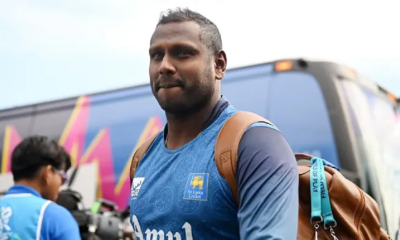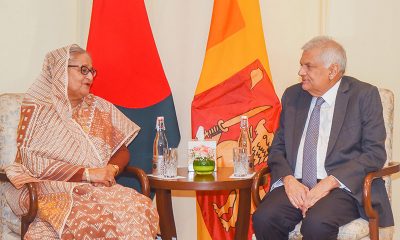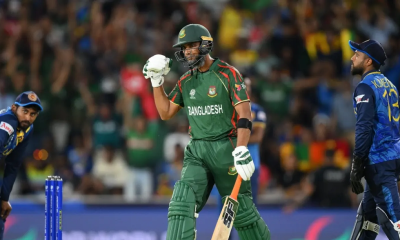Features
Human Rights and War Crimes : Sri Lanka’s ignorance matches that of US

By Daya Gamage
Foreign Service National Political Specialist (ret), US Department of State
The Capitol Building, which houses both legislative branches of the United States – and the Sri Lanka Embassy are not very far apart in Washington, DC. The Capitol Building has an office for Congresswoman, Deborah Ross, who along with another four Members submitted a resolution against Sri Lanka on 18 May (2023) to the House Foreign Affairs Committee, on the day when the 14th anniversary of the conclusion of Eelam War IV fell.
It seems that Congresswoman Ross and the Sri Lanka diplomatic corps have a serious communication gap, which allowed Ross and her staff to engage in a dialogue with a pro-Eelam organisation, the Tamil American United Political Action Committee in Raleigh, North Carolina, which she represents in the Congress, to draft a resolution and submit it to the House Foreign Affairs Committee, castigating Sri Lanka on issues of human rights and alleged war crimes; the Sri Lankan diplomats in the other building failed to remember that it was Ross who had previously submitted a resolution, against Sri Lanka on 18 May 2021, and neglected their diplomatic responsibilities.
They did not meet her to refute the ill-informed pronouncements in the 2021 resolution. Both Resolutions – 2021 and 2023 – are similar. The writings and pronouncements in the Tamil American United PAC Committee website found themselves into the Ross’ resolution of 2023, due to manoeuvrings by Murugiah Muraleetharan, the President of the association.
Then, the Sri Lankan media reported that Foreign Minister Ali Sabry had summoned the Canadian High Commissioner to ‘protest’ Prime Minister Justin Trudeau’s statement that Sri Lanka had committed genocide its war with the LTTE. There were no media reports that Minister Sabry had informed the Canadian diplomat that it was the LTTE that engaged in genocidal acts, forcibly removing Muslims and Sinhalese from the LTTE-controlled Northern Province.
Minister Sabry brought it to the attention of the Canadian diplomat that since the anti-Tamil riots, in 1983, there had been no harassment of Tamils, despite the Tamil Tigers infiltrating the Sinhalese areas, in the south, and massacring Sinhalese villagers and Buddhist monks. There were no indications if Sabry told him that when the war was over, in May 2009, there were 40% (out of the national 12%) Tamils living among the Sinhalese, in the South, far away from the North and the East, and that at present about 50% Tamils are now living outside those provinces.
The State Department’s misconceptions about the final phases of the Vanni war were due to inadequate and incompetent reporting thereon by the American Embassy in Colombo. Questions about Embassy Colombo’s reporting were raised by the State Department Office of the Inspector General (OIG) during a routine assessment of Embassy operations during the period from August 2009 through September 2010. The period under review coincided with the release to Congress by the State Department’s Office of Global Criminal Justice on “Crimes Against Humanity in Sri Lanka”, which drew heavily on Embassy reporting.
OIG reports always identify weaknesses in the Embassy’s performance, but this report on Colombo was particularly critical of the political reporting section, whose personnel are inexperienced and lack proper training. The inspectors found that the American reporting officers in Colombo had not travelled adequately around the country and their reports were insufficiently analytical. No surprise the US Embassy and its Ambassador,accepted uncritically the views of the UN and other sources.
US government officials who denounce Sri Lanka for human rights violations appear to have no proper understanding of the evidentiary weaknesses of their accusations. Worse still, they apparently are ignorant or unmindful of reports by others in the USG and the organisations that attest to these empirical shortcomings. Three important reports relevant to Sri Lanka were published by reputable investigative bodies between December 2008 and September 2009—a period that bracketed the worst alleged crimes by Sri Lanka.
The first of these was produced by the Genocide Prevention Task Force co-chaired by former Secretary of State Madeleine Albright and former Secretary of Defence, William Cohen and convened jointly by the US Holocaust Memorial Museum, the American Academy of Diplomacy, and the United States Institute of Peace. This report noted in general terms, “When our diplomats and intelligence reporting from the post is inadequate, analysts in Washington are left to make judgments from ambiguous and frequently conflicting information and assessments.”
The latter two reports published shortly after the end of hostilities in Sri Lanka were drafted by the US Congress’ independent investigative arm, the Government Accountability Office (GAO). The two reports disclosed very serious weaknesses in policy decisions taken at the highest levels in the State Department as a result of ambiguous and frequently conflicting information and assessments provided by overseas diplomatic missions that are ill-equipped to handle required reporting.
It should be stated here that US lawmakers in both the Senate and the House, apart from getting distorted views from the pro-Tamil Eelam lobby, draw heavily from State Department reports and analyses. Worse, the Washington-based Sri Lankan diplomats as well as Sri Lankan agencies that deal with foreign-international affairs were either blind to reality or conveniently ignored what needed to be presented to the international community (IC).
The disgraceful double-standards of Washington policymakers and lawmakers – and, of course, their overseas diplomats – in dealing with Sri Lanka’s ‘national issues’, since the advent of the separatist war in the north, and the insurrection in the south, in the 1980s, are now very broadly dealt with by two persons who worked within the US Department of State for 30 years in the area of foreign affairs. One is this writer, who is a retired Foreign Service National Political Specialist, once accredited to the Political Section of the U.S. Embassy in Colombo, and the other Dr. Robert K. Boggs, a retired Senior Foreign Service (FS) and Intelligence Officer, who served as Political Counsellor, at the Colombo Mission, with a very broad knowledge of India’s ‘role’ in Sri Lanka. Their manuscript, ‘Defending Democracy: Lessons in Strategic Diplomacy from US-Sri Lankan Relations” is nearing completion with disclosures, analyses and interpretations based on their up-close and personal knowledge and understanding how Washington used ‘double standards’ in handling its foreign relations to reduce Sri Lanka to a client state.
The USG has for years pressed for an international mechanism to judge Sri Lankan military officers for decisions they made in leading their nation’s fight against militants the USG had designated as terrorists. The USG has done this despite its stated policy of recognising “a state’s inherent right to defend itself from armed attacks, including those by non-state actors such as terrorist groups, and expects both states and non-state actors to comply with their international legal obligations.”
For decades Sri Lankan policymakers have demonstrated a poor understanding of how the American foreign policy establishment works and how they might use public diplomacy and strategic communication to counter the influence of the Tamil Diaspora. The persistent ineffectiveness of Sri Lankan diplomacy in Washington has been a major reason why in the final months of the war (March/April 2009) the USG threatened to block a $1.9 billion IMF loan in the hope of dissuading the GSL from continuing its final military campaign. The US threat proved unsuccessful (mainly for intra- governmental reasons), but the additional stress it placed on bilateral relations could have been avoided if the GSL had developed better rapport with Washington through more professional diplomacy.
A serious lack of professional diplomacy, the naive manner in which it dealt with international/foreign affairs, having absolutely no research-investigative ability, Sri Lanka couldn’t understand the following scenario to develop its own diplomatic prowess to deal with Washington:
At the time the United States was pressuring Colombo to accept “national, international, and hybrid mechanisms to clarify the fate and whereabouts of the disappeared,” the USG had not itself ratified the UN convention of 2006 requiring state party to criminalize enforced disappearances and take steps to hold those responsible to account. Despite a resolution passed by the U.S. House of Representatives on November 19, 2020 calling on the USG to ratify the international convention, this still has not happened.
America’s long history of rejecting accountability is strongly rooted in legislation. The American Service-Members Protection Act (ASPA) was an amendment to the 2002 Supplemental Appropriations Act (H.R. 4775) passed in response to the 9/11 terrorist attacks and the launch of the so-called Global War on Terror. The ASPA aims to protect U.S. military personnel and other elected and appointed officials of the government against prosecution by an international criminal court, to which the US is not a party.
Among other defensive provisions the Act prohibits federal, state and local governments and agencies (including courts and law enforcement agencies) from assisting the International Criminal Court in The Hague. It even prohibits US military aid to countries that are parties to the Court. In 2002, during the administration of Prime Minister Wickremesinghe, the GoSL signed with the US an “Article 98 Agreement,” agreeing not to hand over US nationals to the Court.
US policy was based on an inadequate understanding of the underlying causes of the civil war in Sri Lanka—an understanding that does not include inter-caste tensions within the Tamil community, the political obduracy of upper caste elites, unwilling to adapt to the post-Independence democratic order, the origins and dynamics of two competing nationalisms, demographic and economic pressures in an island state, and the imperative in a young democratic system of policies to expand economic opportunity to the disadvantaged majority within both the Sinhalese and Tamil communities.
There has been a perverse lack of appreciation internationally of the threat that an autocratic, criminal, terrorist organisation posed to the security of the great majority of Sri Lankans including Tamils. Tragically, Washington’s simplistic perception of an ethnic majority oppressing a ‘righteously rebellious’ minority prolonged the bloodshed, alienated a historically reliable partner, weakened a beleaguered democracy, and strengthened the influence of US antagonists in the region.
Washington ignored or glossed over the complex skein of factors that dominated ethnic politics for decades. (To be continued)
Features
US foreign policy-making enters critical phase as fascist threat heightens globally
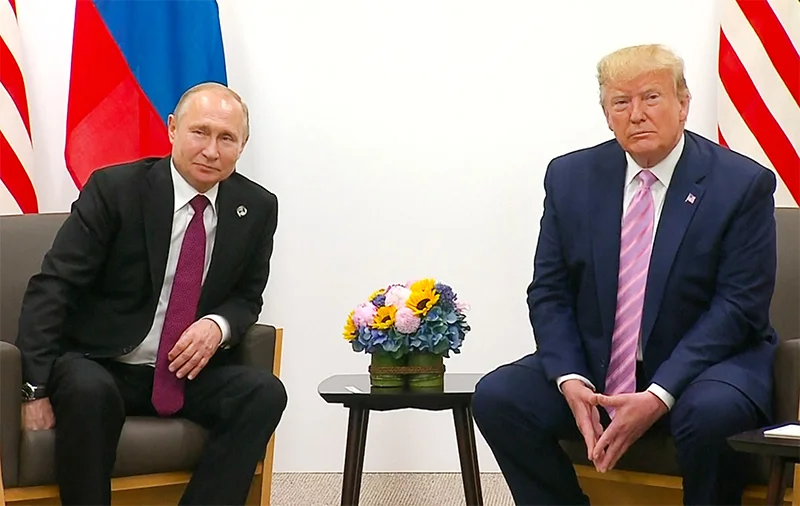
 It could be quite premature to claim that the US has closed ranks completely with the world’s foremost fascist states: Russia, China and North Korea. But there is no denying that the US is breaking with tradition and perceiving commonality of policy orientation with the mentioned authoritarian states of the East rather than with Europe and its major democracies at present.
It could be quite premature to claim that the US has closed ranks completely with the world’s foremost fascist states: Russia, China and North Korea. But there is no denying that the US is breaking with tradition and perceiving commonality of policy orientation with the mentioned authoritarian states of the East rather than with Europe and its major democracies at present.
Increasingly, it is seemingly becoming evident that the common characterization of the US as the ‘world’s mightiest democracy’, could be a gross misnomer. Moreover, the simple fact that the US is refraining from naming Russia as the aggressor in the Russia-Ukraine conflict and its refusal to perceive Ukraine’s sovereignty as having been violated by Russia, proves that US foreign policy is undergoing a substantive overhaul, as it were. In fact, one could not be faulted, given this backdrop, for seeing the US under President Donald Trump as compromising its democratic credentials very substantially.
Yet, it could be far too early to state that in the traditional East-West polarity in world politics, that the US is now squarely and conclusively with the Eastern camp that comprises in the main, China and Russia. At present, the US is adopting an arguably more nuanced approach to foreign policy formulation and the most recent UN Security Council resolution on Ukraine bears this out to a degree. For instance, the UN resolution in question reportedly ‘calls for a rapid end to the war without naming Russia as the aggressor.’
That is, the onus is being placed on only Ukraine to facilitate an end to the war, whereas Russia too has an obligation to do likewise. But it is plain that the US is reflecting an eagerness in such pronouncements to see an end to the Ukraine conflict. It is clearly not for a prolongation of the wasting war. It could be argued that a negotiated settlement is being given a try, despite current international polarizations.
However, the US could act constructively in the crisis by urging Russia as well to ensure an end to the conflict, now that there is some seemingly friendly rapport between Trump and Putin.
However, more fundamentally, if the US does not see Ukraine’s sovereignty as having been violated by Russia as a result of the latter’s invasion, we are having a situation wherein the fundamental tenets of International Law are going unrecognized by the US. That is, international disorder and lawlessness are being winked at by the US.
It follows that, right now, the US is in cahoots with those powers that are acting autocratically and arbitrarily in international politics rather than with the most democratically vibrant states of the West, although a facile lumping together of the US, Russia and China, is yet not possible.
It is primarily up to the US voting public to take clear cognizance of these developments, draw the necessary inferences and to act on them. Right now, nothing substantive could be done by the US voter to put things right, so to speak, since mid-term US elections are due only next year. But there is ample time for the voting public to put the correct perspective on these fast-breaking developments, internationally and domestically, and to put their vote to good use in upcoming polls and such like democratic exercises. They would be acting in the interest of democracy worldwide by doing so.
More specifically it is up to Donald Trump’s Republican voter base to see the damage that is being done by the present administration to the US’ standing as the ‘world’s mightiest democracy’. They need to bring pressure on Trump and his ‘inner cabinet’ to change course and restore the reputation of their country as the foremost democracy. In the absence of such action it is the US citizenry that would face the consequences of Trump’s policy indiscretions.
Meanwhile, the political Opposition in the US too needs to get its act together, so to speak, and pressure the Trump administration into doing what is needed to get the US back to the relevant policy track. Needless to say, the Democratic Party would need to lead from the front in these efforts.
While, in the foreign policy field the US under President Trump could be said to be acting with a degree of ambivalence and ambiguity currently, in the area of domestic policy it is making it all to plain that it intends to traverse a fascistic course. As has been proved over the past two months, white supremacy is being made the cardinal principle of domestic governance.
Trump has made it clear, for example, that his administration would be close to ethnic chauvinists, such as the controversial Ku Klux Klan, and religious extremists. By unceremoniously rolling back the ‘diversity programs’ that have hitherto helped define the political culture of the US, the Trump administration is making no bones of the fact that ethnic reconciliation would not be among the government’s priorities. The steady undermining of USAID and its main programs worldwide is sufficient proof of this. Thus the basis has been adequately established for the flourishing of fascism and authoritarianism.
Yet, the US currently reflects a complex awareness of foreign policy questions despite having the international community wondering whether it is sealing a permanent alliance with the main powers of the East. For instance, President Trump is currently in conversation on matters in the external relations sphere that are proving vital with the West’s principal leaders. For example, he has spoken to President Emmanuel Macron of France and is due to meet Prime Minister Keir Starmer of the UK.
Obviously, the US is aware that it cannot ‘go it alone’ in resolving currently outstanding issues in external relations, such as the Ukraine question. There is a clear recognition that the latter and many more issues require a collaborative approach.
Besides, the Trump administration realizes that it cannot pose as a ‘first among equals’, given the complexities at ground level. It sees that given the collective strength of the rest of the West that a joint approach to problem solving cannot be avoided. This is particularly so in the case of Ukraine.
The most major powers of the West are no ‘pushovers’ and Germany, under a possibly Christian Democratic Union-led alliance in the future, has indicated as much. It has already implied that it would not be playing second fiddle to the US. Accordingly, the US is likely to steer clear of simplistic thinking in the formulation of foreign policy, going forward.
Features
Clean Sri Lanka – hiccups and remedies
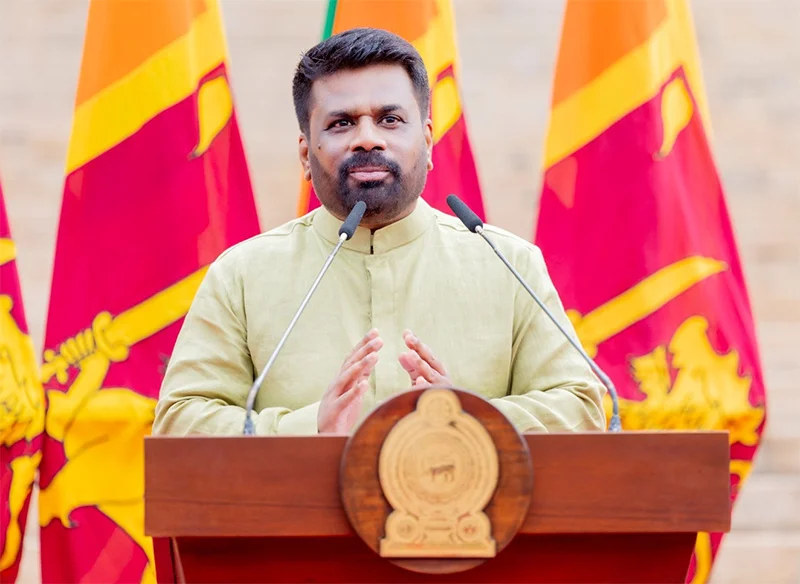
by Upali Gamakumara,
Upali.gamakumara@gmail.com
The Clean Sri Lanka (CSL) is a project for the true renaissance the NPP government launched, the success of which would gain world recognition. It is about more than just cleaning up places. Its broader objectives are to make places attractive and happy for people who visit or use services in the country, focusing more on the services in public institutions and organisations like the SLTB. Unfortunately, these broader objectives are not apparent in its theme, “Clean Sri Lanka,” and therefore there is a misconception that keeping the environment clean is the main focus.
People who realise the said broader objectives are excited about a cleaner Sri Lanka, hoping the President and the government will tackle this, the way they are planning to solve other big problems like the economy and poverty. However, they do not see themselves as part of the solution.
From the management perspective, the CSL has a strategic plan that is not declared in that manner. When looking at the government policies, one can perceive its presence, the vision being “A Prosperous Nation and a Beautiful Life,” the mission “Clean Sri Lanka” and the broader objectives “a disciplined society, effective services, and a cleaner environment.” If the government published these as the strategy, there would have been a better understanding.
Retaining the spirit and expectations and continuing the ‘Clean Sri Lanka’ project is equally important as much as understanding its deep idea. For this, it needs to motivate people, which differs from those motivators that people push to achieve selfish targets. The motivation we need here is to evolve something involuntarily, known as Drivers. Drivers push for the survival of the evolution or development of any entity. We see the absence of apparent Drivers in the CSL project as a weakness that leads to sporadic hiccups and free flow.
Drivers of Evolution
Drivers vary according to the nature of envisaged evolution for progress. However, we suggest that ‘the force that pushes anything to evolve’ would fit all evolutions. Some examples are: ‘Fitting to survival’ was the driver of the evolution of life. Magnetism is a driver for the unprecedented development of physics – young Einstein was driven to enquire about the ‘attraction’ of magnets, eventually making him the greatest scientist of the 20th century.
Leadership is a Driver. It is essential but do not push an evolution continually as they are not sprung within a system involuntarily. This is one of the reasons why CSL has lost the vigour it had at its inception.
CSL is a teamwork. It needs ‘Drives’ for cohesion and to push forward continually, like the Quality Improvement Project of the National Health Service (NHS) in England. Their drivers are outlined differently keeping Aims as their top driver and saying: Aims should be specific and measurable, not merely to “improve” or “reduce,” engage stakeholders to define the aim of the improvement project and a clear aim to identify outcome measures.
So, we think that CSL needs Aims as defined by NHS, built by stakeholder participation to help refine the project for continuous evolution. This approach is similar to Deming’s Cycle for continual improvement. Further, two more important drivers are needed for the CSL project. That is Attitudinal Change and Punishment. We shall discuss these in detail under Psychoactive Environment (pSE) below.
Aside from the above, Competition is another driver in the business world. This helps achieve CSL objectives in the private sector. We can see how this Driver pushes, with the spread of the Supermarket chains, the evolution of small and medium retail shops to supermarket level, and in the private banks and hospitals, achieving broader objectives of CSL; a cleaner environment, disciplined behaviuor, efficient service, and the instillation of ethics.
The readers can now understand the importance of Drivers pushing any project.
Three Types of Entities and Their Drives
We understand, that to do the transformation that CSL expects, we need to identify or adopt the drivers separately to suit the three types of entities we have in the country.
Type I entities are the independent entities that struggle for their existence and force them to adopt drivers involuntarily. They are private sector entities, and their drivers are the commitment of leadership and competition. These drivers spring up involuntarily within the entity.
Type II are the dependent entities. To spring up drivers of these entities commitment of an appointed trustee is a must. Mostly in state-owned entities, categorized as Boards, Authorities, Cooperations, and the like. Their drivers do not spring up within or involuntarily unless the leader initiates. The Government of a country also falls into this type and the emergence of drivers depends on the leader.
Type III entities have neither independent nor dependent immediate leader or trustee. They are mostly the so-called ‘Public’ places like public-toilets, public-playgrounds, and public-beaches. No team can be formed as these places are open to any, like no-man-land. Achieving CSL objectives at these entities depends on the discipline of the public or the users.
Clean Sri Lanka suffers the absence of drivers in the second and third types of entities, as the appointed persons are not trustees but temporary custodians.
The writer proposes a remedy to the last two types of entities based on the theory of pSE explained below.
Psychoactive Environment (pSE) –
The Power of Customer Attraction
Research by the writer introduced the Psychoactive Environment (pSE) concept to explain why some businesses attract more customers than others who provide the same service. Presented at the 5th Global Conference on Business and Economics at Cambridge University in 2006, the study revealed that a “vibe” influences customer attraction. This vibe, termed pSE, depends on Three Distinct Elements, which can either attract or repel customers. A positive pSE makes a business more attractive and welcoming. This concept can help develop Drivers for Type II and III entities.
pSE is not an all-inclusive solution for CSL, but it lays the foundation for building Drivers and motivating entities to keep entrants attractive and contented.
The structure of the pSE
The three distinct Elements are the Occupants, Systems, and Environment responsible for making a pSE attractive to any entity, be it a person, institution, organization, or county. Each of these elements bears three qualities named Captivators. These captivators are, in simple terms, Intelligent, Nice, and Active in their adjective forms.
pSE theorizes that if any element fails to captivate the entrant’s mood by not being Intelligent, Nice, or Active, the pSE becomes negative, repelling the entrant (customer). Conversely, the positive pSE attracts the entrants if the elements are Intelligent, Nice, and Active.
For example, think person who comes to a Government Office for some service. He sees that the employees, service, and environment are intelligent, nice, and active, and he will be delighted and contented. He will not get frustrated or have any deterioration in national productivity.
The Significance of pSE in CSL
The Elements and the Captivators are universal for any entity. Any entity can easily find its path to Evolution or Progress determined by these elements and captivators. The intangible broader objectives can be downsised to manageable targets by pSE. Achievements of these targets make the entrants happy and enhance productivity – the expectation of Clean Sri Lanka (CSL).
From the perspective of pSE, now we can redefine the Clean Sri Lanka project thus:
To make the Elements of every entity in Sri Lanka: intelligent, Nice, and Active.
How Would the pSE be A Remedy for The Sporadic Hiccups?
We have seen two possible reasons for sporadic setbacks and the discontinuity of some projects launched by the CSL. They are:
The absence of involuntary Drivers for evolvement or progress
Poor attitudes and behaviors of people and leaders
Remedy for the Absence of Drivers
Setting up a system to measure customer or beneficiary satisfaction, and setting aims can build Drivers. The East London NHS principles help build the Aims that drive type II & II entities. The system must be designed to ensure continual improvement following the Deming Cycle. This strategy will create Drivers for Type I & II entities.
This process is too long to explain here therefore we refrain from detailing.
Attitudinal Change
The most difficult task is the attitudinal and behavioural change. Yet it cannot be postponed.
Punishment as a strategy
In developed countries, we see that people are much more disciplined than in the developing countries. We in developing countries, give credit to their superior culture, mitigating ours as rudimental. The long experience and looking at this affair from a vantage point, one will understand it is not the absolute truth. Their ruthless wars in the past, rules, and severe punishment are the reasons behind this discipline. For example, anyone who fails to wear a car seatbelt properly will be fined 400 AUD, nearly 80,000 LKR!
The lesson we can learn is, that in Sri Lanka, we need strong laws and strict punishment together with a type of strategic education as follows.
Psychological Approach as a Strategy
The psychological theory of attitude formation can be used successfully if some good programmes can be designed.
All attitude formations start with life experience. Formed wrong or negative attitudes can be reversed or instilled with correct attitudes by exposure to designed life experiences. The programmes have been developed using the concepts of Hoshin Kanri, Brainstorming, Cause-and-Effect analysis, and Teamwork, in addition to London NTS Quality Improvement strategies.
The experience and good responses we received for our pSE programs conducted at several institutions prove and have built confidence in our approach. However, it was a time, when governments or organisations did not pay much attention to cultural change as CSL expects in the country.
Therefore, we believe this is a golden opportunity to take the CSL supported by the pSE concept.
Features
Visually impaired but ready to do it their way
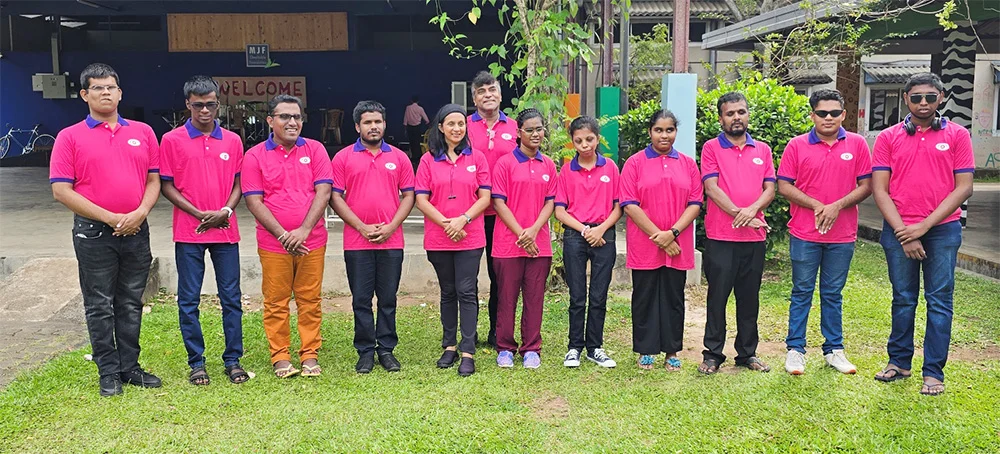
 Although they are visually impaired youngsters, under the guidance of renowned musician Melantha Perera, these talented individuals do shine bright … hence the name Bright Light.
Although they are visually impaired youngsters, under the guidance of renowned musician Melantha Perera, these talented individuals do shine bright … hence the name Bright Light.
Says Melantha: “My primary mission is to nurture their talent and ensure their sustainable growth in music, and I’m thrilled to announce that Bright Light’s first public performance is scheduled for 7th June, 2025. The venue will be the MJF Centre Auditorium in Katubadda, Moratuwa.”
Melantha went on to say that two years of teaching, online, visually impaired youngsters, from various parts of the island, wasn’t an easy ride.
There were many ups and downs but Melantha’s determination has paid off with the forming of Bright Light, and now they are gearing up to go on stage.
According to Melantha, they have come a long way in music.
“For the past few months, we have been meeting, physically, where I guide them to play as a band and now they show a very keen interest as they are getting to the depth of it. They were not exposed to English songs, but I’ve added a few English songs to widen their repertoire.
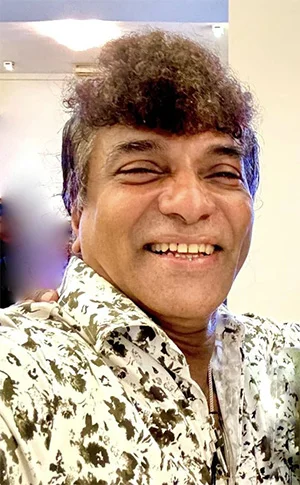
Melantha Perera: Invented a notation
system for the guitar
“On 7th June, we are opening up for the public to come and witness their talents, and I want to take this product island-wide, giving the message that we can do it, and I’m hoping to create a database so there will be a following. Initially, we would like your support by attending the show.”
Melantha says he didn’t know what he was getting into but he had confidence teaching anyone music since he has been in the scene for the past 45 years. He began teaching in 2015,
“When I opened my music school, Riversheen School of Music, the most challenging part of teaching was correcting tone deaf which is the theoretical term for those who can’t pitch a note, and also teaching students to keep timing while they sang and played.”
Melantha has even invented a notation system for the guitar which he has named ‘MelaNota’. He has received copyrights from the USA and ISO from Australia, but is yet to be recognised in Sri Lanka.
During Covid-19, Melantha showcased MelaNota online and then it was officially launched with the late Desmond De Silva playing one of his tunes, using MelaNota.
Melantha says that anyone, including the visually impaired, can play a simple melody on a guitar, within five minutes, using his notation system.
“I’ve completed the system and I’m now finalising the syllabus for the notation system.”
Melantha has written not only for the guitar, but also for drums, keyboards, and wind instruments.
For any queries, or additional information, you could contact Melantha at 071 454 4092 or via email at thebandbrightlight@gmail.com.
-

 Business3 days ago
Business3 days agoSri Lanka’s 1st Culinary Studio opened by The Hungryislander
-

 Sports4 days ago
Sports4 days agoHow Sri Lanka fumbled their Champions Trophy spot
-
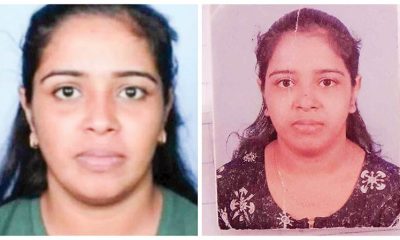
 News6 days ago
News6 days agoKiller made three overseas calls while fleeing
-

 News5 days ago
News5 days agoSC notices Power Minister and several others over FR petition alleging govt. set to incur loss exceeding Rs 3bn due to irregular tender
-

 Features4 days ago
Features4 days agoThe Murder of a Journalist
-
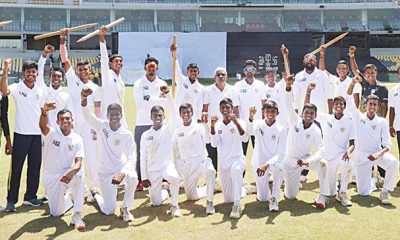
 Sports4 days ago
Sports4 days agoMahinda earn long awaited Tier ‘A’ promotion
-
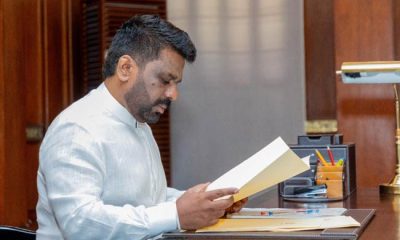
 Features4 days ago
Features4 days agoExcellent Budget by AKD, NPP Inexperience is the Government’s Enemy
-

 News5 days ago
News5 days agoMobile number portability to be introduced in June




